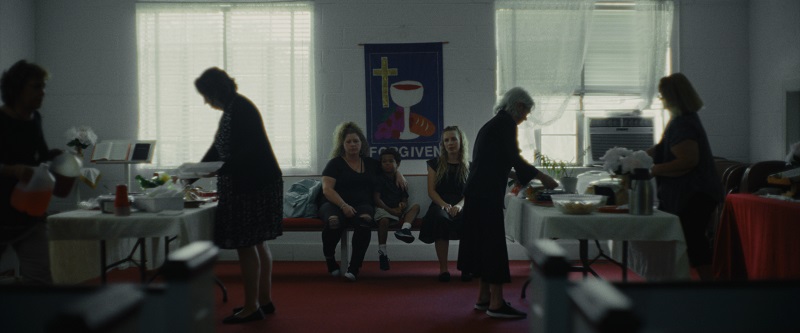A Song for Imogene (Arlee, 2023)
There is no dearth of cultural narratives about the stultifying effects of being trapped in a small town. From Winesburg, Ohio to Footloose to Friday Night Lights, our culture is littered with characters wanting to escape the dead-end of the end of the road.
A Song for Imogene felt a little different, and for part of its run time, I assumed that difference had to do with gender. But there are female characters in the examples I mentioned that want to get out of town. What’s different here, I think, is not gender but age. The tension for a child, or even a young adult, is usually between settling and aspiring. In rare cases (I think of The Starling Girl), it can be between spiritual or even physical death and survival.
Cheyenne (Kristi Ray) is not quite Emilylou Harris’s “Red Dirt Girl” but she is closer to the halfway point of her life than the beginning. So even though A Song for Imogene has some overly familiar genre tropes — the abusive boyfriend as a symbol of patriarchal oppression and unwanted pregnancy as the catalyst for the crisis — it manages to imbue them with a slightly different perspective wrought by a measure of experience.
Cheyenne leaves the abusive boyfriend, but her mother is equally controlling. This is exemplified by a perhaps too-on-the-nose comparison of scenes in which the boyfriend and matron alternately harangue Cheyenne while they watch television. Where is the remote? Why is the service poor? Their lives have constricted to the point where they only feel their immediate need — whatever numbs the pain and distracts from the tedium.
Is this all there is?
If the answer were “yes,” the film probably wouldn’t be worth noting, but writer/director Erika Arlee does a good job of balancing a movie audience’s hunger for uplift with an artist’s need to tell hard truths. The back half of the film turns on the developments between Cheyenne and her adult sister, and here, too, the film manages to win some hard-earned breathing space from the most obvious iterations of such conflicts (which are usually either “Where were you?” or “Mom/Dad loved you best.”
As the summary suggests, A Song for Imogene is not particularly innovative in theme or technique, but it is well executed and should earn Arlee a chance to helm some more projects.

